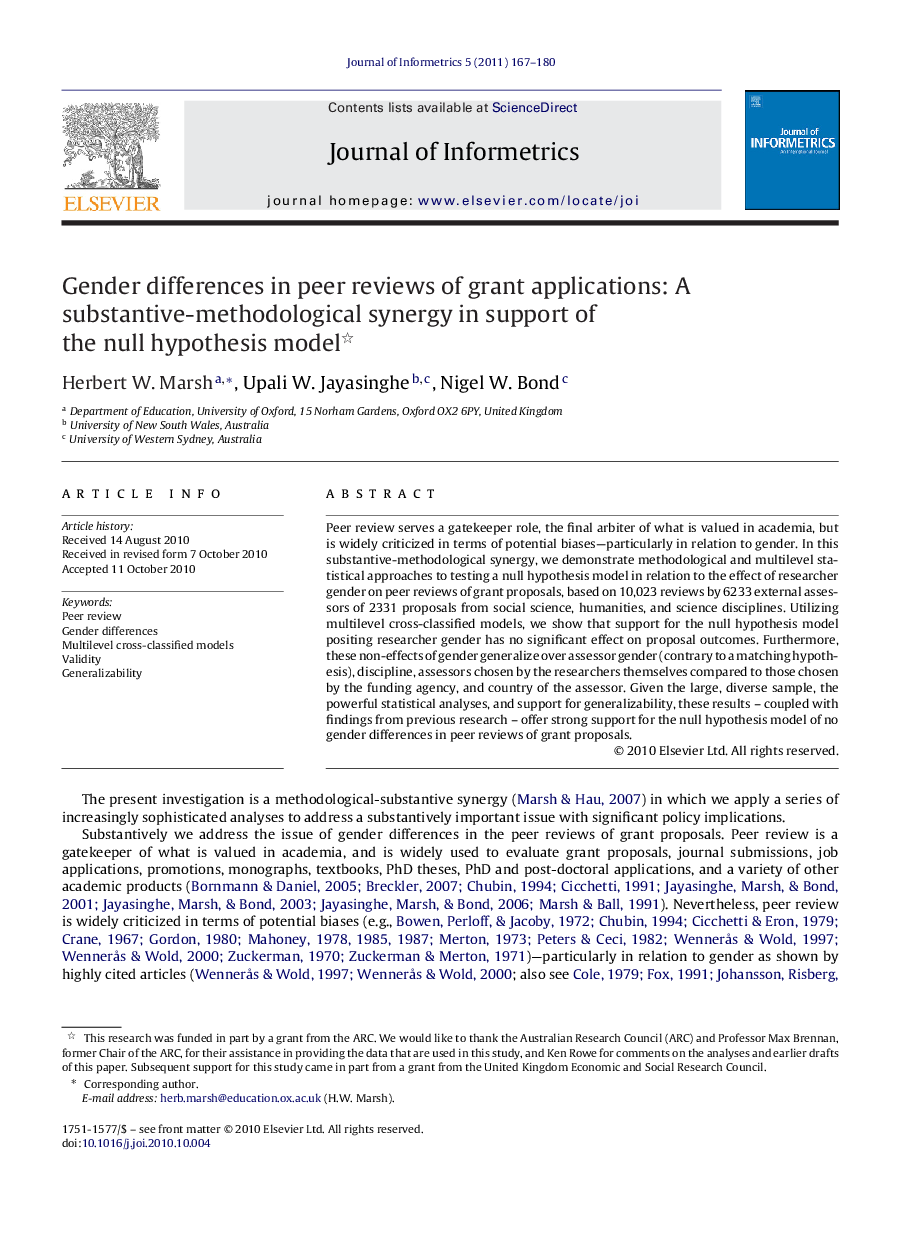| Article ID | Journal | Published Year | Pages | File Type |
|---|---|---|---|---|
| 523134 | Journal of Informetrics | 2011 | 14 Pages |
Peer review serves a gatekeeper role, the final arbiter of what is valued in academia, but is widely criticized in terms of potential biases—particularly in relation to gender. In this substantive-methodological synergy, we demonstrate methodological and multilevel statistical approaches to testing a null hypothesis model in relation to the effect of researcher gender on peer reviews of grant proposals, based on 10,023 reviews by 6233 external assessors of 2331 proposals from social science, humanities, and science disciplines. Utilizing multilevel cross-classified models, we show that support for the null hypothesis model positing researcher gender has no significant effect on proposal outcomes. Furthermore, these non-effects of gender generalize over assessor gender (contrary to a matching hypothesis), discipline, assessors chosen by the researchers themselves compared to those chosen by the funding agency, and country of the assessor. Given the large, diverse sample, the powerful statistical analyses, and support for generalizability, these results – coupled with findings from previous research – offer strong support for the null hypothesis model of no gender differences in peer reviews of grant proposals.
Research highlights▶ Peer review widely used to evaluate many academic products. ▶ Gender is claimed to bias peer review of grant proposals. ▶ Large comprehensive study across all disciplines finds no effect of gender. ▶ Non-effects of applicant gender consistent across discipline, country, and assessor gender.
